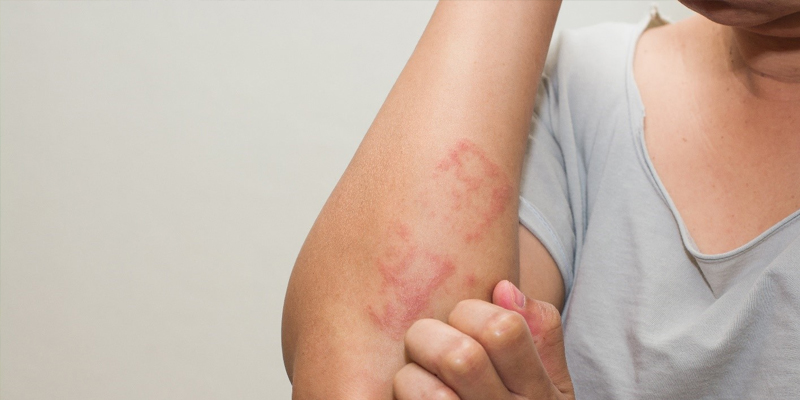ISLAMABAD – One of the side-effects of monsoon, besides waterlogging, is the health hazard the rain brings with it, fungal, allergies and parasitic infections.
Patients, mostly children between the age group of 4-10, suffering from allergies and fungal infection, account for around 20% skin and dermatological ailment at the hospitals.
Taking adequate precautions is one of the best ways to avoid monsoon-related ailments. Consultant physician Dr Waseem Malik says “People must avoid getting drenched and should always carry an umbrella. Even when they are drenched, they must immediately follow preventive measures because if left untreated, it can leave permanent scars on the skin,” “In case of a skin infection, use an anti-fungal powder to avoid any further infection. Always keep your skin dry. Don’t wear wet clothes. Also, wet shoes should be changed instantly. These small precautions go a long way in having a healthy and infection-free skin,” he added.
There has been a rise in around 20% skin-related problems this monsoon compared to last year. Patients are complaining of skin rashes, itching and various other dermatological symptoms, he said.
Talking to dermatologist Noshhen Haider said that “ people with diabetic diseases are more prone to skin infections. They must see a doctor when symptoms like red skin rashes appear lest they leave scars and turn untreatable later.”
The commonest of infections during monsoon are facial folliculitis (an inflammation of the hair follicles), acne and ringworm. The cause of such infections is mostly bacterial or fungal. People are more susceptible to infections during this season due to excessive sweating, dehydration, photo-toxic effects of the sun and, of course, humidity, she added.
Allergies like non-bullous and bullous impetigo, fungal infections, recurrent attacks of folliculitis, tinea capitis (fungal infection of hair) are commonly detected in people, especially kids during the monsoons. An immediate bath after playing in the rain and application of an anti-bacterial soap is crucial. Besides, one must also drink filtered water to avoid dehydration, she said.
She advised that the ideal way to avoid such problems would be to try and keep dry and avoid excess perspiration. Taking regular and more frequent baths can help. Also, be careful of using public toilets, where due to lower hygiene one is exposed to infections. Keep the body hydrated by consuming 10-12 glasses of water and also apply plenty of moisturizers to keep your skin hydrated.














